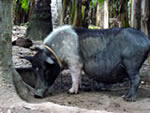Pigtrop - Le centre d'information sur l'élevage porcin et les filières porcines des pays du Sud
Vous êtes ici :
>
Sujets
>
Développement rural
>
TELEFOOD Projects
>
Telefood project in Philippines
CIRAD © 2007 (Tous droits réservés) - Informations légales - Page mise à jour : 10/05/2007

